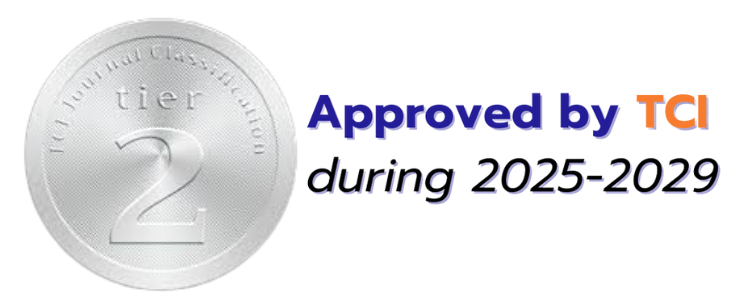The School Based Management for the Development of Educational Quality at Thamakavitthayakom School
Keywords:
Administration, School-Based Management (SBM), Educational QualityAbstract
This research is research and development with the following objectives: (1) studying the current situation of school administration at Thamakavitthayakom School based on the School-Based Management (SBM) concept, and (2) developing a school-based administration model, namely the (TMV)² Model, to enhance the quality of education management at Thamakavitthayakom School. The study was conducted in two parts. The first part of the study aimed to examine the current conditions of school administration according to the School-Based Management concept by employing a Modified Priority Needs Index (PNImodified). The sample consisted of 4 deputy school directors, 84 teachers and educational personnel, selected through stratified random sampling. A questionnaire was used to assess both the current and desired states of school-based administration. The data were analyzed using means, standard deviations, and the Modified Priority Needs Index (PNI Modified). The subsequent part of the study involved developing the (TMV)² Model through focus group discussions to evaluate its usefulness, feasibility, appropriateness, and comprehensiveness for application in the school’s educational management. Participants in the focus group were 9 experts with knowledge, experience, and expertise in school administration model development. The research instruments included focus group discussion guidelines and recording forms, with qualitative data analyzed through content analysis.
The results are as follows:
- The essential needs for school-based administration at Thamakavitthayakom School were identified in three priority areas: (1) teachers and educational personnel should participate in improving new working methods in order to solve problems and enhance operational efficiency, (2) school administrators should delegate authority to teams, teachers, and educational personnel, allowing them to play a significant role in decision-making processes to achieve maximum benefits, and (3) school personnel should implement risk control and management plans in their operational practices.
- The school-based administration model for enhancing the quality of educational management at Thamakavitthayakom School consists of six key components: (1) principles and concepts of the model, (2) objectives of the model, (3) operational systems and mechanisms, (4) operational processes, (5) measurement and evaluation, and (6) conditions for implementation.
Downloads
References
Getzels, J. W., & Guba, E. G. (1975). Social behavior and the administrative. The School Review, 65(12),
–441.
Hoy, W. K., & Miskel, C. G. (2001). Educational administration: Theory, research and practice. McGraw-
Hill International.
Nurin, K. (2019). School-based management. Journal of the Association for the Development of
Educational Administration Profession of Thailand, 32(2), 33–39.
Office of the National Education Commission. (2019). National Education Act B.E. 2542 and amendments
(4th edition) B.E. 2562. Office of the Prime Minister.
Phengsawat, W. (2010). Applied statistics for social science research. Suviriyasarn.
Sankhumpim, P. (2015). School-based management of school administrators and the basic education
standards of schools under the Office of Ratchaburi Primary Educational Service Area 1 (Master’s
thesis, Silpakorn University).
Sidaeng, W. (2019). School-based management of Huai Krajao Phitthayakhom School under the
Secondary Educational Service Area Office 8 (Independent study, Silpakorn University).
Thamakavitthayakom School. (2023). School self-assessment report (academic year 2022).
Thamakavitthayakom School. [Unpublished internal document].
Wongwanich, S. (2007). Research on needs assessment. Bangkok: Chulalongkorn University Press.
Wilson, R. J. (2001). School-based management in Alberta: Perceptions of Public School Leaders, 1994–
(Ed.D. dissertation, University of San Diego).
Downloads
Published
Issue
Section
License
Copyright (c) 2025 วารสารศาสตร์การศึกษาและการพัฒนามนุษย์

This work is licensed under a Creative Commons Attribution-NonCommercial-NoDerivatives 4.0 International License.







